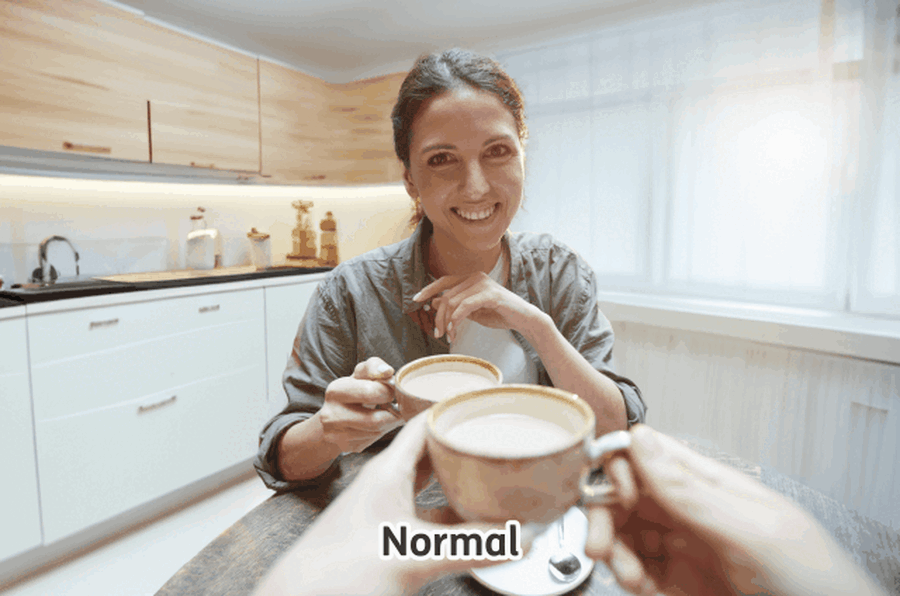Blog post
How Regular Eye Tests can Help Prevent Trips and Falls in the Elderly
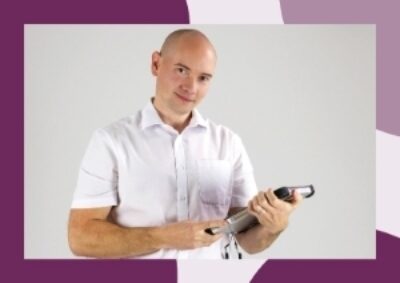
Matthew Burford BSc(Hons) Optometry MCOptom - Domiciliary Optician and Professional Services Manager at OutsideClinic
3 minute read time
Unfortunately, trips and falls can be a common occurrence for the elderly population – in fact, falls are the most common cause of hospitalisation for over-65s in the UK, with one in three experiencing a fall every year.
Our eyesight is fundamental to coordinating our balance and stability and how we move around. When vision is impaired, negotiating obstacles or stairs becomes much more challenging, impacting how safely residents can move around unaided.
The likelihood of impaired vision increases significantly with age, meaning that older people are more likely to experience trips and falls, even with carers present.
It’s also worth noting that a fall, or even the fear of falling, can damage a person’s confidence, self-esteem and even their independence. As a result, it can discourage the individual from being mobile or participating in the world around them.
Lack of engagement and movement can result in depression, isolation, bedsores, and sore joints. These situations are often avoidable through proactively using eye care to reduce a person’s risk of falls.
We've highlighted just a few ways that regular sight testing can help residents remain steady on their feet and feel confident travelling safely around their home environment.
Discovering and understanding conditions
Suppose a patient is experiencing trips and falls more often than usual or appears unsteady on their feet. In that case, they may be experiencing a sight loss condition.
Age-related macular degeneration (AMD) creates a gap in the central vision, while glaucoma blurs the peripheral vision, creating a 'tunnel vision' effect and blocking obstacles from view.
Cataracts create an overall blurry vision, making it hard to identify where hazards might be, while a case of diabetic retinopathy can cause multiple gaps or black spots in the vision.
A rarer condition that can also affect mobility is Charles Bonnet Syndrome, which can distort how rooms look and make it difficult for a resident to move around confidently and safely.
Any one of these common conditions could affect how a patient sees the world and how they move around, so a regular eye test can help monitor conditions and understand what possible issues a patient might be experiencing.
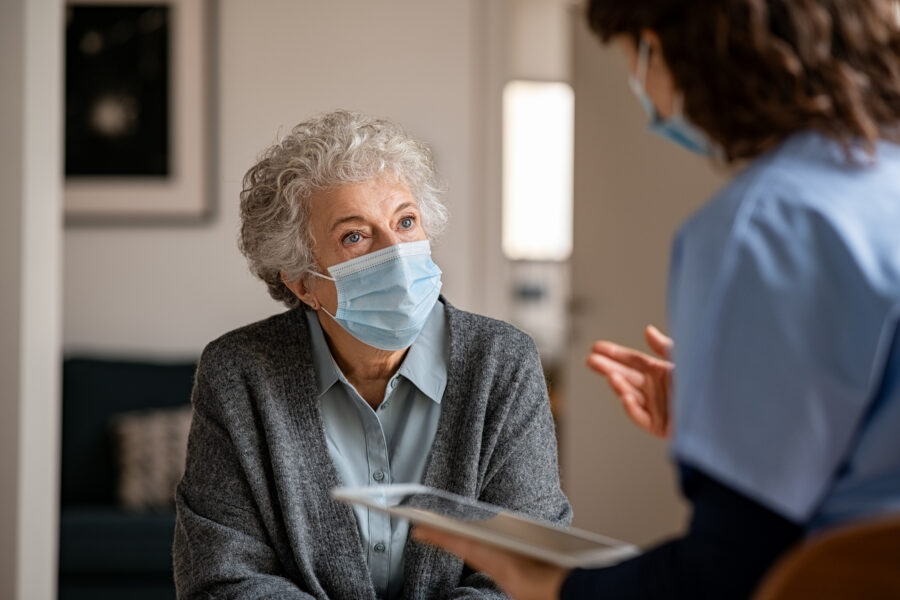
Helping carers adapt their care
A regular sight test can uncover these common conditions, but that's not all. Armed with the knowledge of the issues a patient might be experiencing, carers can easily understand their patient's needs and adapt their care routines to suit.
Perhaps a patient needs more assistance travelling around the home or help with basic tasks such as bathing or dressing, to lower the risk of falling.
If their central vision is affected, they may struggle with things like reading or cooking. In contrast, damage to their peripheral vision may make other tasks like moving unaided around the home or taking the stairs more difficult.
Regular sight tests and advice from Opticians can ensure that carers can provide the right care and support for each patient, limiting their risks and helping them feel confident.
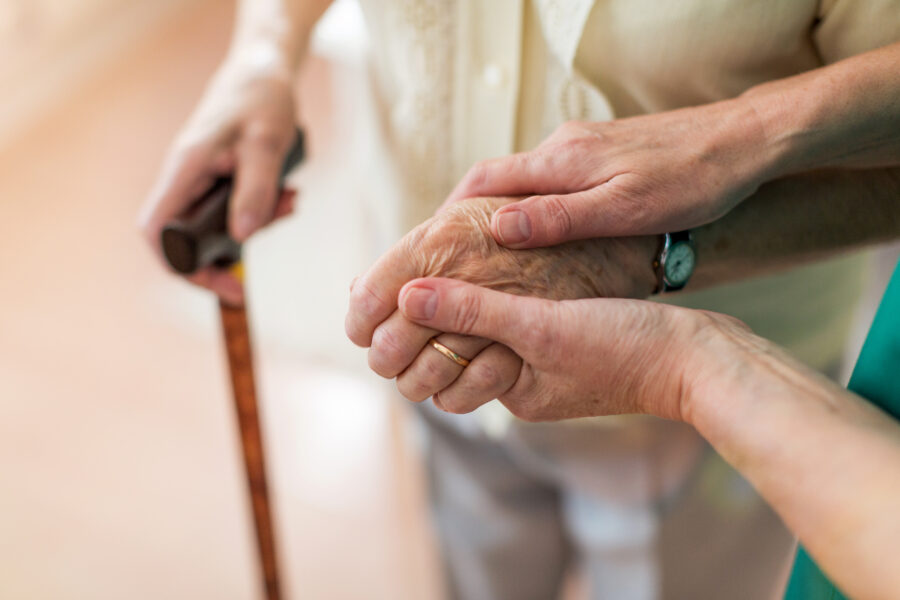
Prescribing appropriate spectacles
Having an up-to-date prescription and wearing the right glasses is crucial in lowering the chance of experiencing a fall.
Sight tests will determine the quality of the patient's vision and assess any changes, allowing the optometrist to prescribe suitable spectacles, even if that means separate spectacles for different tasks.
The optometrist can provide advice and guidance on which pair should be worn for which activities. This will allow the care team to ensure that residents are wearing the right glasses and have the correct prescription, lowering their probability of tripping or falling and helping them feel safer and more independent every day.
If you are concerned about changes in your vision and eye health or a resident or relative, please don't hesitate to contact us for guidance.
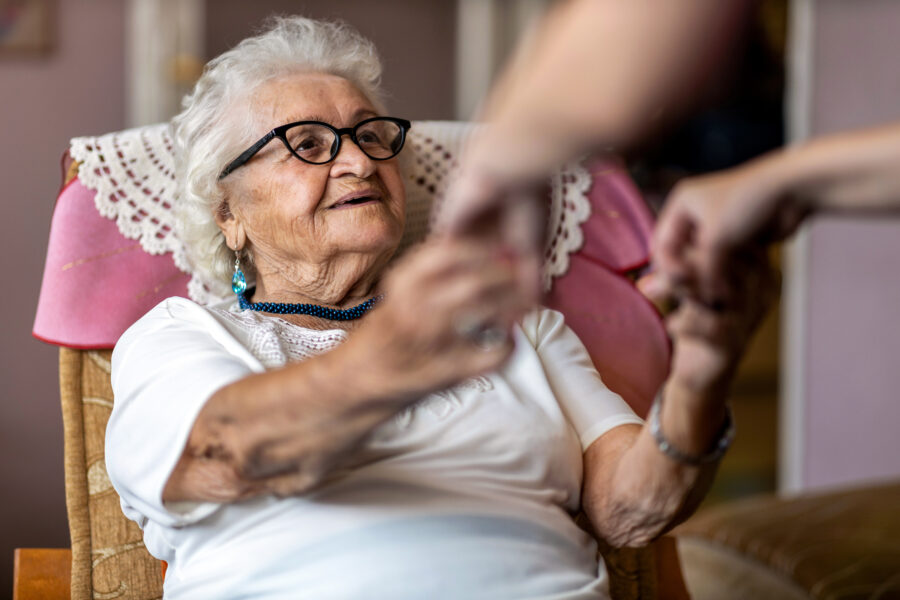

By Matthew Burford BSc(Hons) Optometry MCOptom - Domiciliary Optician and Professional Services Manager at OutsideClinic
Matthew graduated from Aston University in 2004 with a degree in Optometry.


